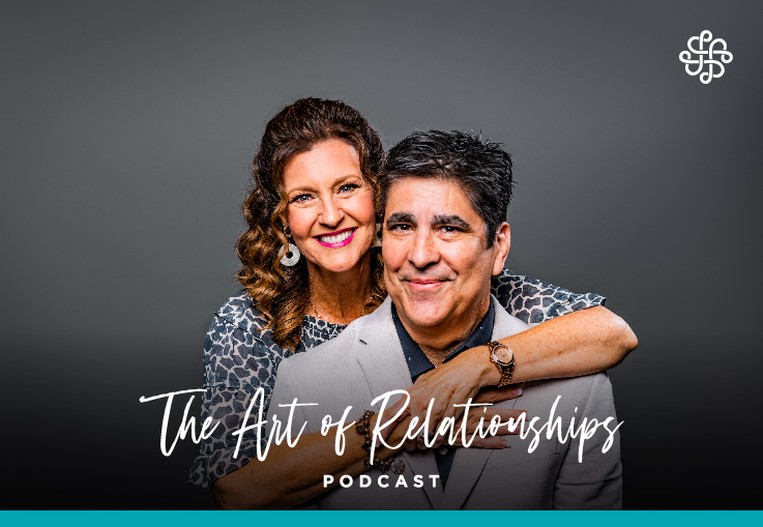Is Compatibility Really That Important? Pt. 1
Chris Grace - July 5, 2016
Topic: Dating, Engagement

One of the first questions we face when we begin dating or thinking about taking a relationship to a deeper level is related to compatibility. Is our attraction to each other based on our being so alike, or so different? Do we seem well suited for each other, perhaps because we enjoy the same things? Are we generally more similar or different in our personality traits? And even if we feel like it is a good match, with all the sparks and chemistry hoped for, is it likely to stay that way, or is the relationship vulnerable to the seemingly inevitable “irreconcilable differences” that breaks apart so many couples?
Compatibility is a popular but confusing term. As commonly defined this is what people think about when they say, “We are so alike —we both react the same way to the same situations,” or “We were made for each other,” or “I feel like I have found my soul mate.”
But not all compatibility is created equally. Matching up in one area may be pleasing and highly desirable, but may not be a good measure of future relationship health or success. Some types of compatibility are more interesting than important, more trivial then transformative. If we use the wrong measuring sticks we can be easily fooled into love as we fall in love, leading to questionable if not regrettable decisions.
Some types of compatibility are more interesting than important, more trivial then transformative. If we use the wrong measuring sticks we can be easily fooled into love as we fall in love, leading to questionable if not regrettable decisions.
Here are some things to think about, some things to avoid, and some things to be vigilant and prayerful about when it comes to compatibility with that special someone.
Empty or Surface Compatibility
It seems obvious to most people that compatibility based on trivial things like the day of ones birth are probably not good measures. When people say, “We have the same sign” or “Our planets align” or “All the quizzes I take say we match perfectly” they are probably talking about empty compatibility. It may be as benign as “ We both squeeze the toothpaste from the bottom” or as profound a feeling like the other “completes me.” This kind of compatibility is unrealistic and leads some to believe that they have found that perfect harmonious match, and will live peacefully together without problems or conflict. Such compatibility is short lived, lasting until the first blow-up or unresolved conflict, and fades as quickly as it started. Experts would advise people to avoid easy and simplistic answers, like websites that promise a FULL ROMANTIC COMPATIBILITY REPORT by using nothing more then your date or time of birth.
Surface compatibility is also problematic. This is where two people may love the same things—walking on the beach, hanging out on the same website, doing nerdy things together, or using the same Bible app in church. It is often something you can see in behavior, as they may act in similar ways, or get excited about similar things. Surface compatibility is important—It often leads to attraction. However, it also is not strong enough to sustain a relationship for the long haul. Why? Because interests can and very often do change: I used to love to ski while growing up in Colorado, but after moving to California I lost interest in it. Be cautious if the only thing you have in common is based on interests, hobbies or preferences. They frequently change and make for unstable foundations for lasting relationships. While good for attraction, these things often don't provide for deeper intimacy.
Romantic and Friendship Compatibility
There is strong scientific evidence that we are emotional beings “designed” to connect. This connection often starts with a spark that can lead to a manic-like state of passion— often portrayed in movies and romantic comedies. It is the wish or expectation for most couples. While it is good to feel passionate, or at least some spark in the presence of another, in the long run it is not sustainable at high levels. A recent study found that 40% of couples married for over 20 years say they are still passionately in love! Contentment and passion in marriage are not mutually exclusive, but fires warm and excite us when they stay contained and under control. A friend of mine often says to his wife, “You are so hot you should be banned from walking down the frozen food aisle!”
Companionate or friendship compatibility is hopefully what we are left with when the heat and chemistry slow to a manageable boil. We like our partners because we like those who reward us (e.g., pay attention to us.) and those we associate with good feelings. We like to be liked. We like people when they laugh at our jokes, making us feel accepted. When they like what we like it makes us feel valued. When they enjoy what we enjoy it makes us feel validated. Companions are usually on the same page, literally in sync, naturally coordinate and synchronize their actions, and in so doing express to the other nonverbally “I like you!” with almost every interaction. Happy couples have been found to have a ratio of 5 positive interactions for every 1 negative interaction. This is a great guide for determining friendship compatibility, and a goal to aim for. Ask, “How do I feel when I’m with the other person?” Am I comfortable? Can I be vulnerable? Open? Does it feel genuine? Do we seem “connected or in-sync?” Do we laugh easily? Do I trust him or her? Do I feel like the other person “gets me”? As Dinah Maria Mulock Craik writes:
Oh, the comfort, the inexpressible comfort of feeling safe with a person, having neither to weigh thoughts nor measure words, but pouring them all right out, just as they are, chaff and grain together; certain that a faithful hand will take and sift them, keep what is worth keeping, and then with the breath of kindness blow the rest away.
In Part 2 of this blog I explore three types of compatibility that many experts agree are the most important when it comes to determining relationship health and success: Personality, Conflict and Faith Compatibility.

Chris Grace
Christopher Grace serves as the director of the Biola University Center for Marriage and Relationships and teaches psychology at Rosemead School of Psychology. He and his wife, Alisa, speak regularly to married couples, churches, singles and college students on the topic of relationships, dating and marriage. Grace earned his M.S. and Ph.D. in experimental social psychology from Colorado State University.

 4 Ways Culture Impacts Relationships Pt. 2
4 Ways Culture Impacts Relationships Pt. 2
 What To Do When Your Partner Just Doesn't Get It
What To Do When Your Partner Just Doesn't Get It